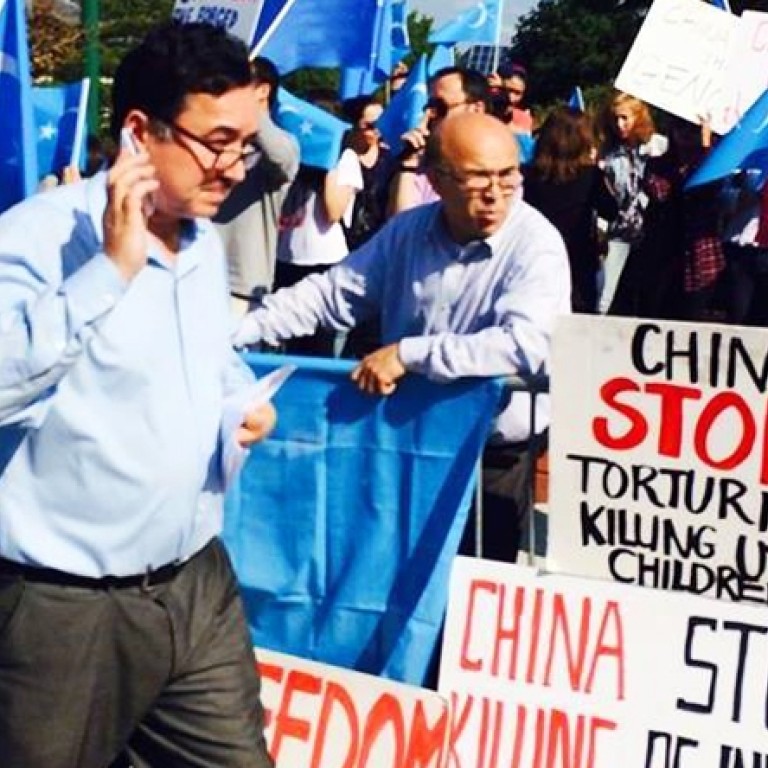
US-based Uygur journalist claims China targeting him by pressuring his family
Uygur journalist Shohret Hoshur left China 20 years ago, fearing for his safety after the authorities branded him a separatist for his critical coverage of the plight of his fellow ethnic Uygurs.
Now based in Washington, in the United States, he believes Chinese authorities have adopted another tactic to get him off the airwaves – pressuring his family.
The US State Department expressed deep concern yesterday over reports that three of Hoshur’s brothers in his native homeland had been imprisoned in retribution for his journalism.
The 49-year-old reporter said it followed years of threats by authorities in the restive region of Xinjiang in China’s far west, where his broadcasts in the Uygur language offer a rare alternative to state-run media.
There has been no coverage of their cases in Chinese media, but his relatives in Xinjiang have been told by police that one brother was sentenced to five years in jail at a mass trial in June, after being accused of endangering state security.
The other two brothers were detained in August, apparently for “leaking state secrets” after speaking by phone to Hoshur about the trial. They have not been seen by their family since.
“We urge Chinese authorities to cease harassment of his family and to treat them fairly and with dignity,” State Department spokeswoman Jen Psaki told a press briefing in Washington.
She also urged respect for internationally recognised human rights, including freedom of expression.
China’s embassy in Washington did not immediately respond to a request for comment.
Hoshur reports for the US government-funded Radio Free Asia.
He said that authorities began harassing his family in Xinjiang’s Qorghas county after a September 2009 story about the death of a Uygur torture victim.
The pressure intensified last spring as authorities cracked down on perceived enemies among Uygurs – a Muslim minority group in China – amid a series of deadly attacks over recent months that Chinese authorities have blamed on radical separatists.
Hoshur said his brothers were farmers and merchants with little if any interest in politics or social issues, and dismissed the validity of any of the charges brought against them. He also said he would give in to pressure to give up his journalism with Radio Free Asia, although his sister-in-law has been told by local government officials that this is the only way to get his brothers released.
“In my personal experience, the Chinese authorities could intensify their pressure after you start obeying them,” said Hoshur who has been honoured at the New York Festivals radio programme awards for his investigative coverage of Uygurs that have gone missing since the deadly unrest in Xinjiang in 2009.
“If I leave from my job, this method can be used widely among Uygurs abroad as a successful tactic,” he said.
“I don’t want to be made an example of, obeying an authoritarian regime’s unacceptable demand”
The Committee to Protect Journalists drew attention to the plight of Hoshur’s brothers on Wednesday, describing it as a “long-distance tactic to suppress Uygur coverage.”
The New York-based group said China was the world’s worst jailer of journalists last year – with 44 in prison – an increase from 32 in 2013.
